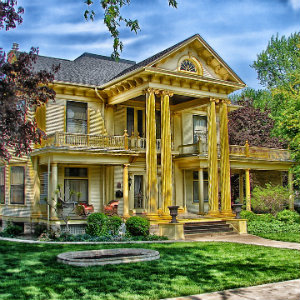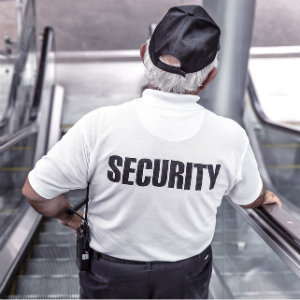Have you been injured in an accident at a business, residence, or other private property? You may be wondering:
- Who is legally responsible?
- Do I have grounds for a lawsuit?
- What damages could I recover?
Don't suffer alone due to a property owner's carelessness. Our lawyers are here to fight for the compensation you deserve.
I'll work with you to hold negligent property owners liable for the dangerous conditions which caused your injuries.
Owning a property requires certain responsibilities. Property owners, whether commercial or residential, owe a duty of care to any and all people who might enter their property. They must make sure that their property is free of dangers and hazards which could cause an accident and subsequent injuries.
However, many property owners neglect this duty. According to the Center for Disease Control, unintentional falls are overwhelmingly the leading cause of nonfatal injuries treated in emergency rooms. Many of these injuries could have been prevented by more responsible property maintenance.
What Is Premises Liability?
If you've been injured on someone else's property and are wondering about your legal options, you should first learn to understand the concept of premises liability.
Every time you enter another property, you enter into an implicit agreement with the owner. When they accept you as a guest or customer, it is implied that they have done everything they can to ensure your safety. When a property owner fails to keep their property safe and someone gets hurt, the owner may be held liable for damages in a personal injury lawsuit based on premises liability.
FREE PERSONAL INJURY CONSULTATION
What Are Some Common Examples?
The premises liability statute can apply to a variety of personal injury cases. Common examples include:
Slips, Trips, & Falls
As we mentioned above, slips, trips, and falls cause the highest amount of nonfatal injuries. It's extremely important for property owners to consistently evaluate their properties for hazards which could cause a fall. Common examples of hazards include:
- Ice and snow
- Spills left uncleaned
- Wet floors from mopping with no warning sign
- Uneven surfaces
- Broken steps and staircases
- Potholes
- Wet leaves
- Inadequate lighting
In order for a slip and fall case to be viable, you need to satisfy one of three criteria for proving fault:
- The owner or an employee "should have known" about the danger - This is determined by asking whether a "reasonable person" in the same position would have been aware of the hazard and addressed it.
- The owner or employee did know about it but neglected to fix it.
- The owner or employee directly caused the danger
The time that the danger had been present, the property owner's maintenance routine, and the reason for an obstruction being left in the open will all be considered when determining negligence.
Dog Bite Injuries
Dog bite injuries usually occur on residential properties. Dog owners owe a duty to their guests to protect them or warn them of any potential for a dog attack. Failure to do so may constitute negligence and warrant a subsequent lawsuit when a dog bite causes serious injuries.
Common forms of dog owner negligence include:
- Failure to keep the dog secured on a leash
- Failure to warn guests of a dog's aggressive tendencies
- Failure to separate dog from guests when the dog has become aggressive
If you were injured by a dog bite on the dog owner's property, there is a good chance that premises liability would apply to your case. But regardless of location, you only need to prove negligence for a dog bite lawsuit to be viable.
Inadequate Security
In areas that are known for high crime rates, property owners are responsible for providing adequate security for guests. Sometimes, a failure to do so will result in a guest become a crime victim.
In order to prove negligence in these cases, you must prove that the owner knew or should have known about the crime risk and failed to address it properly. For example, if you got mugged and were the tenth person to get mugged at the same property in the past year, the owner reasonably could have foreseen the circumstances which lead to your injuries.
Additionally, you must establish that:
- You were lawfully permitted to be on the property
- The property owner failed to fulfill their duty to provide adequate security
- You were injured because of this failure
- The injury caused actual damages
These cases are complex and require thorough legal research in order to establish negligence. An experienced personal injury lawyer can help you gather the information you need to file a lawsuit.
Swimming Pool Injuries
Pennsylvania has official statewide building codes for private swimming pools. These codes are meant to reduce the risk of a drowning or accidental injury. Specifically, these codes specify that:
- Any body of water 24 inches or deeper is legally considered a pool.
- Pools must be fenced on all sides and the fence must be at least 48 inches high.
- For above-ground pools, the sides of the pool may act as a fence if they are at least 48 inches high.
- Above-ground pools must have a removable locking ladder which must be removed or locked when the pool is not in use.
- For in-ground pools, fence gates must be self-closing and latching. The house may act as the fourth side of the fence. All house doors leading to the pool must have an audible warning device.
When someone injures themselves or drowns as a result of a code violation, that property owner may be held liable under premises liability.
Amusement Park Accidents
Amusement park owners must take extra special care when ensuring the safety of their guests. An injury caused by a faulty amusement park ride can cause extremely serious injuries or death. These owners are required to keep the entire property free of dangers, including:
- Frequent ride maintenance and safety inspections
- Adequate safety restraints on rides
- Safety instructions
- Adequate supervision of park employees
- Warnings for slippery surfaces
- Railings for steep walking paths
- Cleaning up spills in a timely manner
When a guest becomes injured as a result of a foreseeable danger, the park's owners may be held liable for any damages which resulted from the accident.
Legal Options
If you or a loved one has suffered a serious injury or wrongful death and believe a negligent property owner is to blame, the team at Monheit Law is here to help. We have experience with a variety of premises liability cases and are prepared to put in the work necessary to secure the compensation you need for a smooth recovery. You may be eligible for the following damages:
- Medical expenses
- Past and future lost wages
- Loss of quality of life
- Pain and suffering

